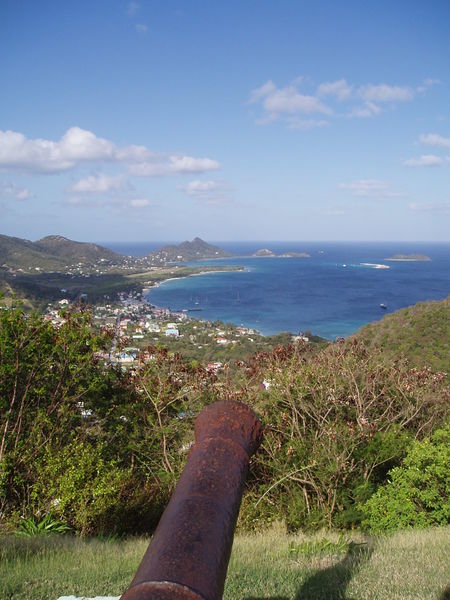Michael Crichton died in late 2008 of throat cancer.[1] Several months later, in 2009, his publishers (HarperCollin) reported that they had found two manuscripts that he was working on before his death. One was a novel technothriller about fringe technologies, called Micro, which was published in 2011. The other was a novel about pirates [2] that Crichton had been working on sinced the 1970s.[3] This one was given the title Pirate Latitudes and was published in 2009.
My verdict: Despite the publisher's claims, I suspect that Pirate Latitudes was either unfinished or unpolished and got some attention from a second author. In many places the diction is remarkably more prosaic and stylistic than the usual airport novel fare Crichton turned out. However, the general plot outline—everything that can possibly go wrong, does—is definitely Crichton's. Even the title, I suspect, wasn't Crichton's since it has a literal meaning (the geographical latitudes where pirates operated) and a figurative one (the moral latitudes of said pirates). That said, the treatment of the moral excessess of the pirates (and their acquaintances) is just that: excessive. The violence is graphic, the language is coarse, and the sex is unrestrained (but at least we're spared explicit descriptions).[4] In short: Crichton has written better novels, that at least have a point (e.g. Jurassic Park).
Notes:
[1] See http://en.wikipedia.org/wiki/Michael Crichton#Illness and death.
[2] Actually, it's about privateers, and the distinction between privateers and pirates is a plot point, so it's too bad the novel is called Pirate Latitudes.
[3] See http://en.wikipedia.org/wiki/Pirate Latitudes#Background history.
[4] There was also a perplexing scene where a female character begins a séance and feels a presence enter the room with her. The scene ends there and is never revisited. What was the point of that? Perhaps this novel wasn't finished, after all?
Image attributions:
Rusty cannon on a Caribbean isle is by Atiemann, available at http://commons.wikimedia.org/wiki/File:Hillsborough Carriacou.jpg.
My verdict: Despite the publisher's claims, I suspect that Pirate Latitudes was either unfinished or unpolished and got some attention from a second author. In many places the diction is remarkably more prosaic and stylistic than the usual airport novel fare Crichton turned out. However, the general plot outline—everything that can possibly go wrong, does—is definitely Crichton's. Even the title, I suspect, wasn't Crichton's since it has a literal meaning (the geographical latitudes where pirates operated) and a figurative one (the moral latitudes of said pirates). That said, the treatment of the moral excessess of the pirates (and their acquaintances) is just that: excessive. The violence is graphic, the language is coarse, and the sex is unrestrained (but at least we're spared explicit descriptions).[4] In short: Crichton has written better novels, that at least have a point (e.g. Jurassic Park).
Notes:
[1] See http://en.wikipedia.org/wiki/Michael Crichton#Illness and death.
[2] Actually, it's about privateers, and the distinction between privateers and pirates is a plot point, so it's too bad the novel is called Pirate Latitudes.
[3] See http://en.wikipedia.org/wiki/Pirate Latitudes#Background history.
[4] There was also a perplexing scene where a female character begins a séance and feels a presence enter the room with her. The scene ends there and is never revisited. What was the point of that? Perhaps this novel wasn't finished, after all?
Image attributions:
Rusty cannon on a Caribbean isle is by Atiemann, available at http://commons.wikimedia.org/wiki/File:Hillsborough Carriacou.jpg.

No comments:
Post a Comment